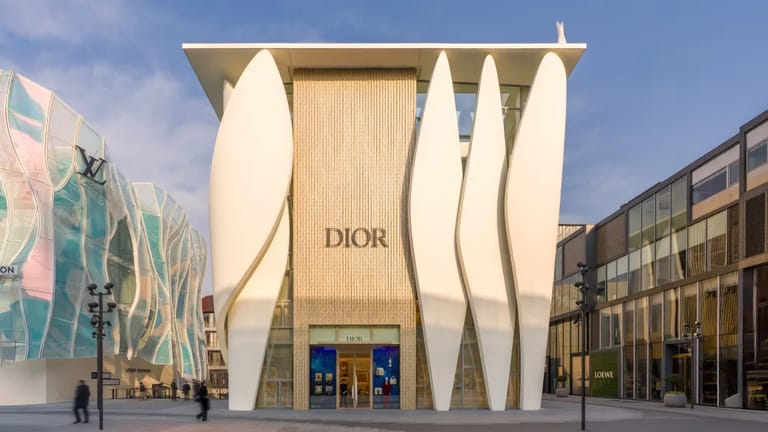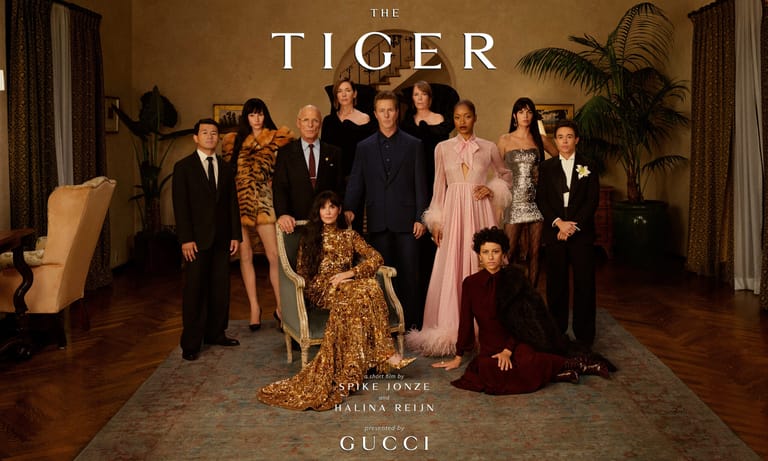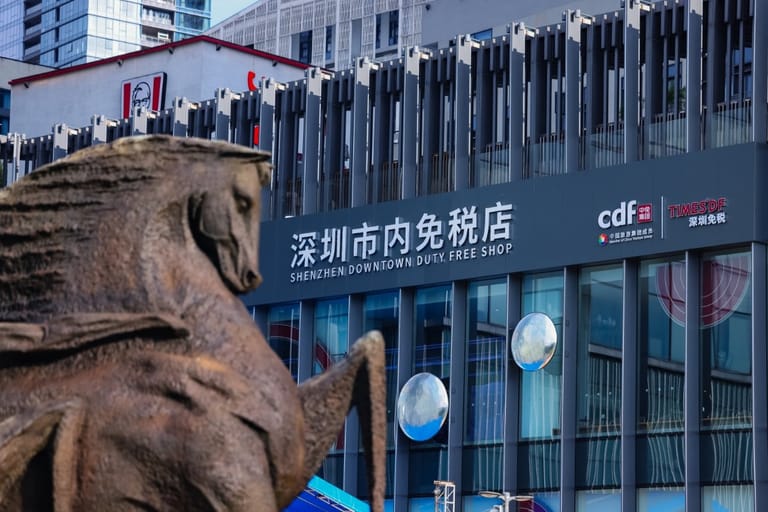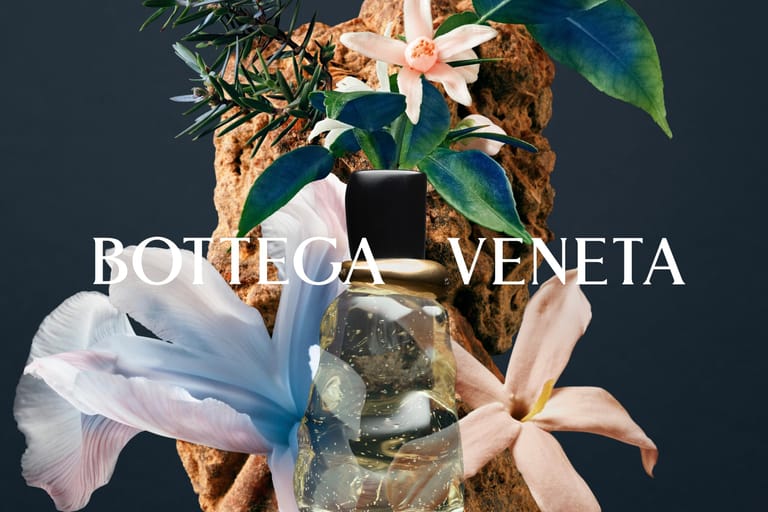Monday Briefing: Alibaba’s AI Push, De Beers’ Struggles, and Laopu Gold’s Rise
By
Wenzhuo Wu

Published on
February 24, 2025
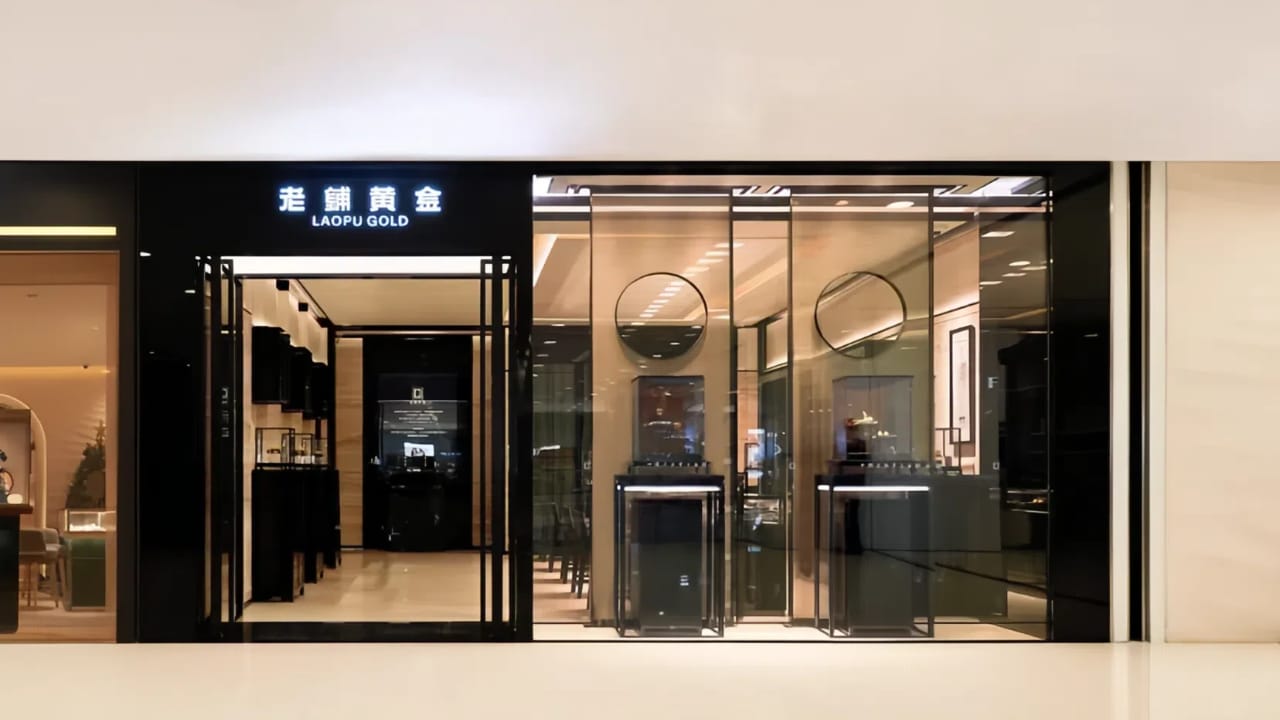
Start your week with sharp analysis and fresh insights into China’s latest cultural, luxury, and consumer trends. Monday Briefing connects the dots between local shifts and global repercussions, highlighting relevance to the luxury market, business strategies, and modern lifestyle trends shaping our world today.
As China’s luxury market continues to evolve, brands are under increasing pressure to adapt to swiftly changing consumer behaviors and significant technological advancements. This past week, key developments in the e-commerce and luxury sectors highlighted the ongoing transformation in China’s market, including Alibaba’s bold investment in artificial intelligence (AI) and cloud computing, De Beers’ difficulties adjusting to changing consumer appetites, and Laopu Gold’s surge in domestic and international growth. Here’s a closer look at the key developments shaping China’s luxury and retail sectors.
Alibaba Doubles Down on AI and Cloud as It Reshapes Its Future
In a landmark move signaling its ambition to lead in the next wave of technology, Alibaba announced a massive investment of 380 billion yuan (US$52.44 billion) over the next three years to bolster its AI and cloud computing infrastructure. The e-commerce giant also reported solid quarterly earnings, with revenues hitting 280.15 billion yuan for the period ending December 31, slightly surpassing analysts’ expectations.
Alibaba’s commitment to AI is especially noteworthy as it solidifies its partnership with Apple. Alibaba will provide AI solutions for iPhones sold in China, a clear move to strengthen its competitive edge against homegrown rival DeepSeek, which has been making waves with affordable AI models. Alibaba’s upgraded Qwen 2.5 model is reportedly outperforming DeepSeek’s latest iteration, suggesting that Alibaba is poised to become a leader in the AI race, not just within China but globally.

This push into AI comes while Alibaba consolidates its domestic and international e-commerce platforms under a single business unit, the Alibaba E-commerce Business Group, which is a strategic move to stabilize market share. Its global business—which includes cross-border platforms such as AliExpress and Alibaba.com—has shown impressive growth, with 32 percent revenue growth in the last quarter. As Alibaba continues integrating its e-commerce and cloud businesses, it is positioning itself as the linchpin of China’s digital economy, making its next moves crucial for global investors and local competitors.
De Beers: Declining Demand and Shifting Retail Dynamics in China
While Alibaba is focusing on innovation, De Beers is grappling with a far more challenging reality: declining demand for diamonds in China. Last week, the mining giant’s parent company, Anglo American, revealed a multibillion-dollar write-down of its diamond division, underscoring De Beers’s difficulties in maintaining its luxury status in a changing market. Over the past two years, diamond demand in China has plunged by 40 percent, reflecting broader consumer preference shifts undermining the brand’s long-standing dominance.
The rise of lab-grown diamonds—more affordable and often marketed as more sustainable alternatives—has accelerated the trend away from traditional mined stones. In addition, retailers in China are increasingly offloading polished diamonds back into the midstream market to recover their costs, leading to bloated inventories further suppressing De Beers’ ability to maintain price control.
China, once the crown jewel of De Beers’ luxury market, now represents a critical battleground where shifting tastes are challenging the brand’s relevance. The company’s financial struggles in China signal broader changes in consumer behavior, with younger generations increasingly prioritizing sustainability, value, and experiential luxury over traditional markers. The stakes are high for De Beers as it rethinks its strategies in the face of these challenges.
Laopu Gold: Local Luxury Rising Amid Global Ambitions
While global luxury brands like De Beers grapple with China’s shifting demands, local players like Laopu Gold thrive. The Chinese luxury gold retailer projects an impressive net profit increase of 236 to 260 percent for the year ending December 31, 2024, driven by product innovation, retail expansion, and rising consumer demand.
Laopu Gold’s brand power is growing as its product line continues to be optimized and new products are introduced to meet the evolving preferences of Chinese consumers. The company’s aggressive retail strategy is paying off, with new stores opening in high-traffic locations like Zhengzhou’s Dennis David City and Hong Kong’s Harbour City. These expansion efforts and the brand’s ability to attract consumers with its premium gold offerings have allowed Laopu Gold to thrive even in a challenging market environment.
Perhaps most notably, Laopu Gold is setting its sights on international markets. The brand recently announced plans to open its first overseas store in Singapore’s iconic Marina Bay Sands. As it expands internationally, the key question remains: can Laopu Gold replicate its domestic success in new markets, and how will this affect the luxury retail landscape? With the ongoing rise in gold prices and the brand’s soaring recognition, Laopu Gold is positioning itself as a key player in local and global luxury retail landscapes, potentially reshaping how luxury is consumed worldwide.




